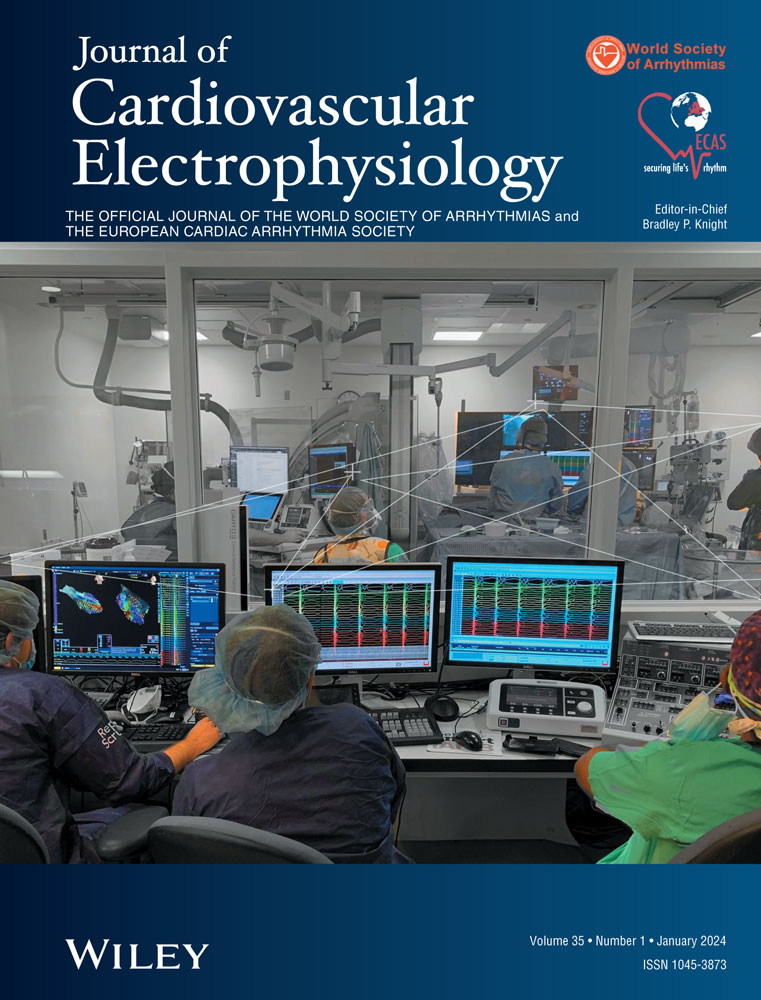Clinical outcomes and predictors of delayed echocardiographic response to cardiac resynchronization therapy
Abstract
Introduction
The clinical outcomes and mechanisms of delayed responses to cardiac resynchronization therapy (CRT) remain unclear. We aimed to investigate the differences in outcomes and gain insight into the mechanisms of early and delayed responses to CRT.
Methods
This retrospective study included 110 patients who underwent CRT implantation. Positive response to CRT was defined as ≥15% reduction of left ventricular (LV) end-systolic volume on echocardiography at 1 year (early phase) and 3 years (delayed phase) after implantation. The latest mechanical activation site (LMAS) of the LV was identified using two-dimensional speckle-tracking radial strain analysis.
Results
Seventy-eight (71%) patients exhibited an early response 1 year after CRT implantation. Of 32 non-responders in the early phase, 12 (38%) demonstrated a delayed response, and 20 (62%) were classified as non-responders after 3 years. During the follow-up time of 10.3 ± 0.5 years, the delayed and early responders had a similar prognosis of mortality and heart failure (HF) hospitalization. In contrast, non-responders had a worse prognosis. Multivariate analysis revealed that a longer duration (months) between initial HF hospitalization and CRT (odds ratio [OR]: 1.126; 95% confidence interval [CI]: 1.036–1.222; p = .005), non-exact concordance of LV lead location with LMAS (OR: 32.744; 95% CI: 1.101–973.518; p = .044), and pre-QRS duration (OR: 0.901; 95% CI: 0.827–0.981; p = .016) were independent predictors of delayed response to CRT compared with early response.
Conclusion
The prognoses were similar regardless of the response time after CRT. A longer history of HF, suboptimal LV lead position, and shorter pre-QRS duration were related to delayed response than early response.
CONFLICT OF INTEREST STATEMENT
Dr. Yanagisawa belongs to an endowed department sponsored by Medtronic Japan Co., Ltd. Drs. Shimojo and Tsuji are affiliated with a department that is sponsored by Japan Lifeline Co., Ltd, Biotronik Japan, Inc., Fukuda Denshi Co., Ltd, and Suzuken Co., Ltd.
Open Research
DATA AVAILABILITY STATEMENT
The data that support the findings of this study are available on request from the corresponding author. The data are not publicly available due to privacy or ethical restrictions.




